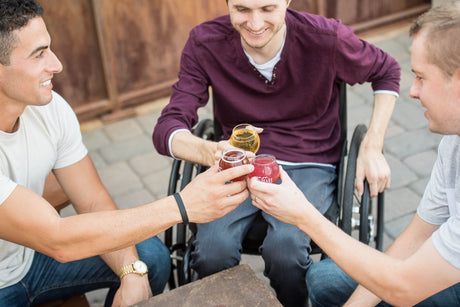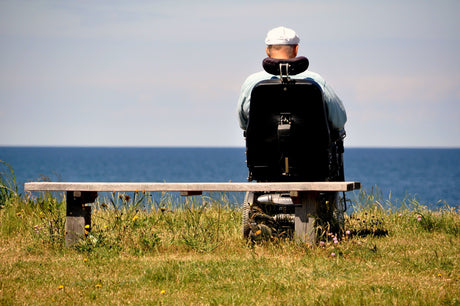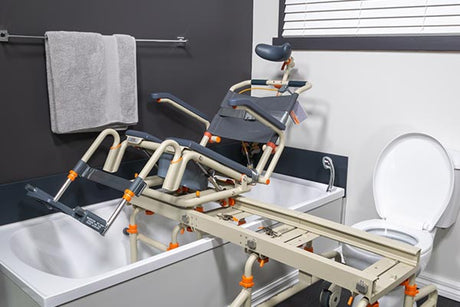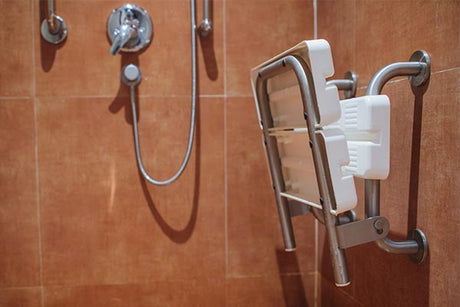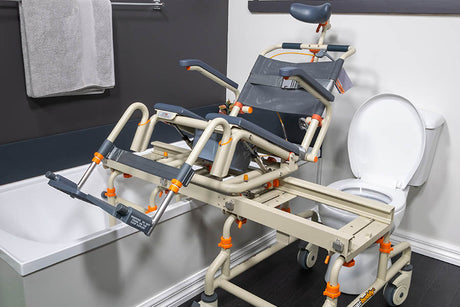The information in this article is intended as a general guide only. Always consult the support plan and occupational therapist.
You need to know and contribute to the plan
A support plan will often be put together for an individual who can’t carry out the tasks of daily life alone. Depending on the level of impairment, this might be led by an occupational therapist, whose job it is to understand your parent’s daily needs and formulate a plan to accommodate these. Other input from GP, doctors, physio therapist and of course the individual themselves will help to round out a workable support plan. But the child of your disabled and/or elderly parent, you should have an active interest in this plan – especially if you’re looking to support them on a daily basis such as instances when the parent moves in.
If you don’t contribute to the plan, you might be faced with a programme that doesn’t suit your current commitments. An example of this being the outside care schedule at certains times of day or week. Make sure your commitments to supporting your parent are not coming at the detriment of your children or partner – an OT will work with you to build a plan that works for everyone.
Keep communication open
It may seem obvious that a parent/child relationship will naturally be high in trust and communication – but it’s unlikely you’ve had to help them with things as personal as using the bathroom. Make sure to work on keeping an ongoing discussion about how they’re finding the support, and whether they want to change anything with how and who helps them do daily tasks. Remember, where possible they should be allowed to remain your parent and continue this relationship even after a reduction in mobility.
Enabling your parent to retain as many aspects of the parent/adult child relationship can work wonders for their happiness and dignity. This way, you’re almost ‘ring-fencing’ the moments of support to what they are, rather than a wholesale transformation of your old relationship. Of course there are instances where this isn’t possible, such as parents who are also experiencing other disability or impairment that affects more than just movement.
Get proper training on home care best practice
If you plan on providing physical help – and in most cases you’ll find yourself in situations where you’re the only one around to do this, then it’s worthwhile understanding the right (and wrong) ways to lift and move someone to prevent injuring either of you. There’s a number of movements common to shifting your parent, each requiring different techniques to protect your body from strain. Professional in home carers receive this training and can help guide you through this. Speak with your parent’s occupational therapist or support lead about getting some advice.
Learn more about safe patient handling in our dedicated article
Look after your own health
You can’t expect to provide support to your disabled parent regularly if you don’t take care of your own wellbeing. That means:
- Get plenty of sleep.
- Do regular exercise.
- Eat 3 good nutritious meals a day.
- Dedicate time to boosting your
- mental wellbeing – socialising with
- friends, relaxation time etc.
- Rest if you get ill.

Delegate tasks to other willing friends and family.

Don’t overwhelm your parent with too much change at once
There’s no way around it – getting daily support when you’ve previously felt 100% independent is a huge adjustment. So once the support plan is in place, try to stagger any new things (e.g. additional support people or equipment) gradually. Once your parent is fully comfortable with their programme, they will become more receptive to changing parts of their support.
It can be easy to overwhelm your parents with an information overload, too. So take things slowly, and lean on therapists and doctors for the tricky conversations.
Talk to someone

Create a home environment that makes parent caring easier
Unless your home already has someone with a mobility challenge living there before your parent arrives, chances are the house isn’t set up optimally. Access and layout of rooms are two of the most frequent challenges you’ll come up against. While it might not be immediately possible to make big changes to the access of the home, you and the family can certainly reduce hazards by changing furniture layouts and removing items off the ground. In order to stay close to your parent during nighttimes, you may look at swapping around some rooms, too. Also think about the proximity of your parent’s room, bathroom and living area where they will spend the most time. The less transportation around the home, the better.
Use the care support available to you
Depending on your country, there are a range of support and benefits available to disabled persons, and even financial assistance for primary support people. If your life has changed as a result of having your disabled parent live at your house, you should investigate what support is available to you.
Even if you are the primary support person for your parent, many regions offer respite care to give you a break.
Remember, the Occupational Therapist (and often PT, too) are central to your mother or father’s care plan. Ultimately you can access them for help when needed. They may need to come back and do another assessment and plan if you, your family or your parent’s needs have evolved from the initial programme.
Determine what you can handle vs. outside support
It may be that you can provide care for parts of the day or week but not round the clock. In these situations, the solution may be for scheduled professional home support to come at regular intervals, allowing you to focus on other parts of your life – school drop offs, work, shopping, maintenance on the home, socialising, hobbies or any other important activity to you.
A successful long term arrangement relies on a support plan that works for everybody, not just your parent with mobility impairment.
Use assistive technology for better support
The innovation within our industry in the 21st century has made home support so much easier than it ever was before. The physical toll of support can be greatly reduced by relying on quality mobility equipment. One of the most hazardous and challenging physical movements is transferring an individual into and out of shower and off/onto the toilet. It’s why the Showerbuddy range of transfer chairs was developed – take the strain off the user and their support person with a seamless system of chair, base and bridge.

Are you looking for assistive technology to help make your parents’ daily lives easier? Discover our range of shower transfer chairs here to help bring some dignity and independence to the most private of daily routines – showering and toileting.
Further Reading
- Caring For Someone – My Aged Care (Australian Govt)
- How to Care for a Parent With a Disability – WikiHow
- Caring for someone with a health condition, injury or disability – WINZ (NZ Govt)
- Caregiver Support – USA Gov Website
- Disability benefits – Canada Gov Website




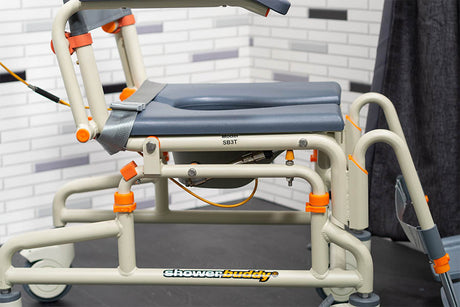
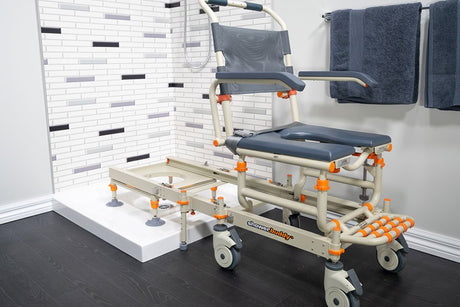

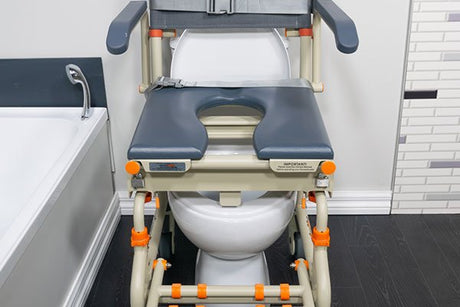


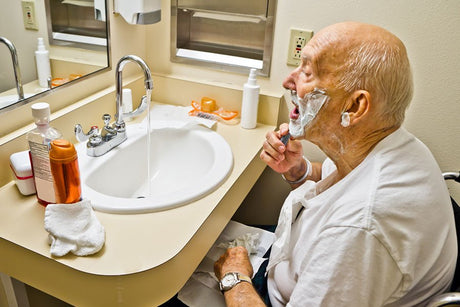

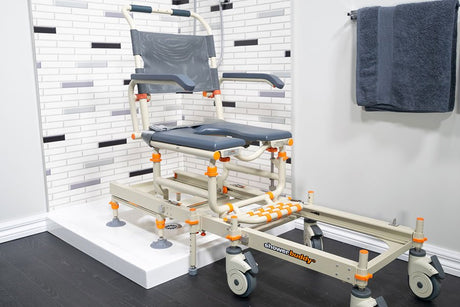

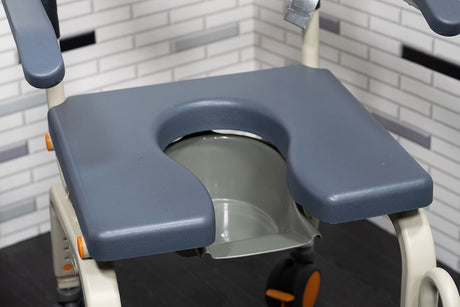



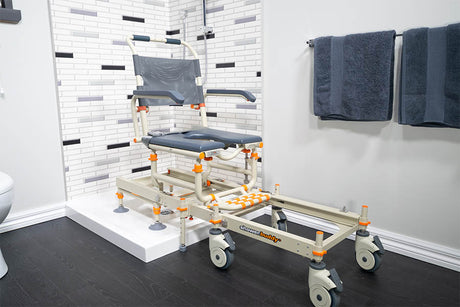

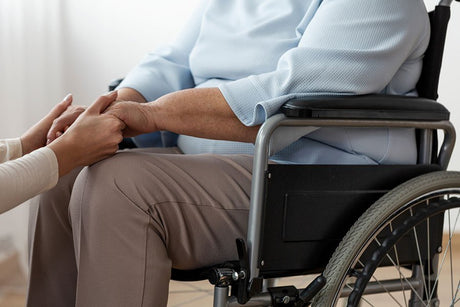
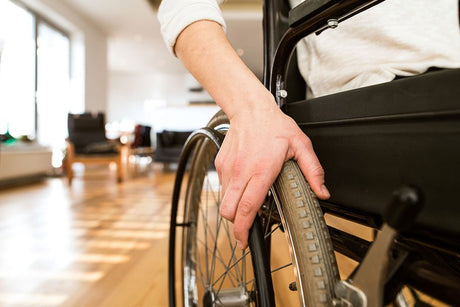
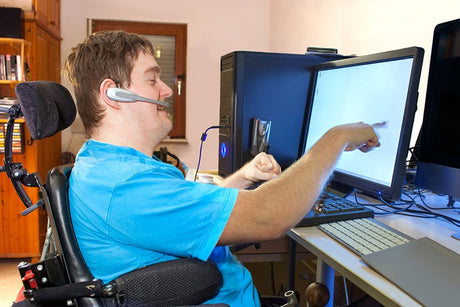


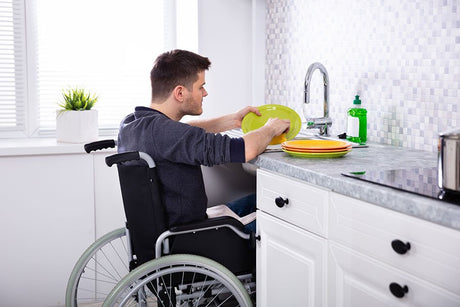
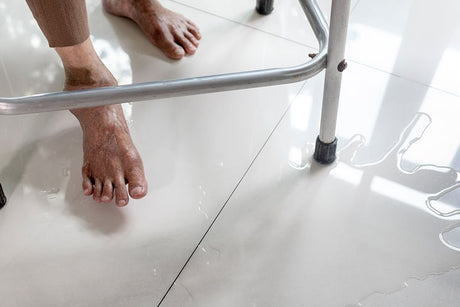
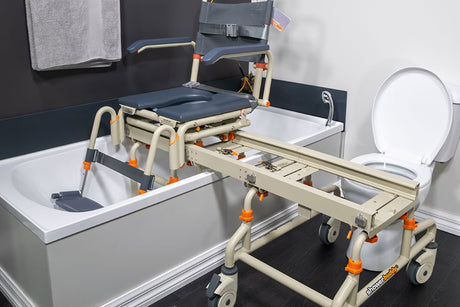
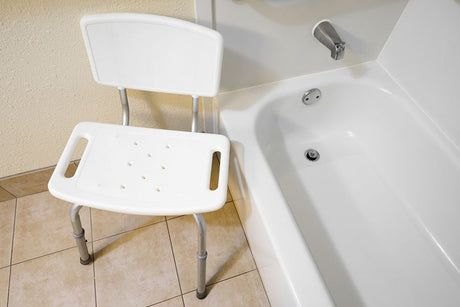
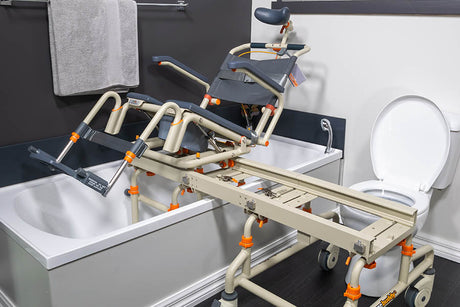
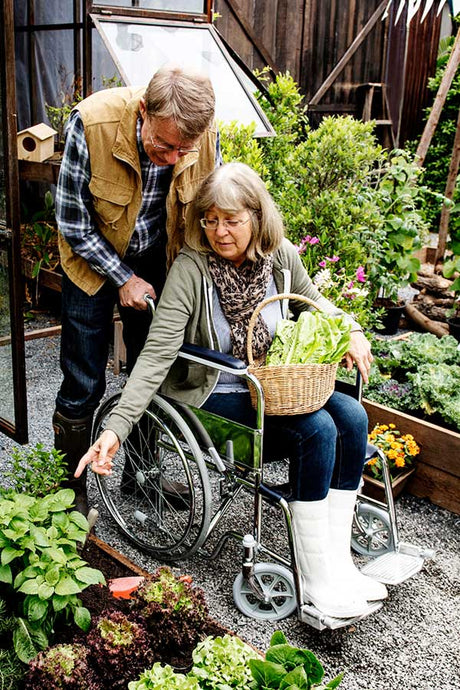
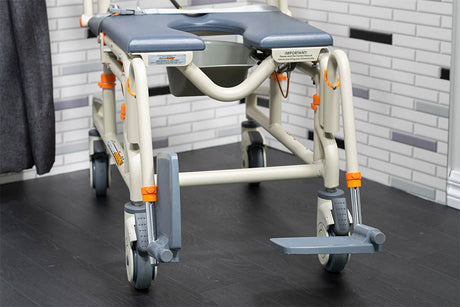




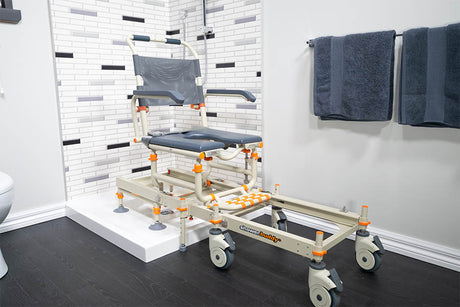





![Toilet Training A Young Child With Mobility Challenges [And How A Shower Chair Can Help]](http://shower-buddy.com/cdn/shop/articles/toilet-training-disabled-child.jpg?v=1699405543&width=460)


